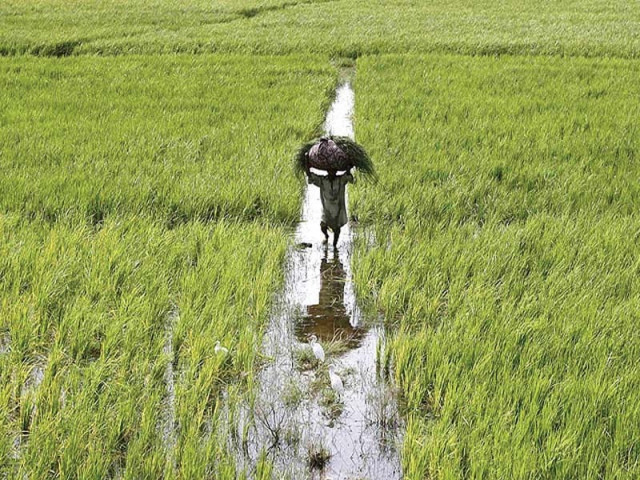Pakistan, Australia engage in 10-year aid partnership
Assistance will support economic growth and development in Pakistan

Australia and Pakistan would continue to partner in development projects that aligned with Pakistan’s priority needs, including in agriculture, water resource management, clean energy, health and nutrition. PHOTO: FILE
Australian High Commissioner to Pakistan Margaret Adamson and Economic Affairs Division Secretary Tariq Bajwa signed the Aid Partnership Arrangement 2016-25.
Australia announces $19m aid for Pakistan
The arrangement underpins the continuation of Australia’s long-term Official Development Assistance (ODA), reflecting its commitment to supporting Pakistan in building its economic prosperity and promoting sustainable and equitable development.
The Australian government is providing an estimated AUD47 million in total development assistance to Pakistan in 2016-17.
“Through this arrangement, Australia and Pakistan have jointly acknowledged financial aid through government platforms and support through international organisations and registered NGOs,” said a statement issued by the Australian High Commission in Islamabad.

Australia is also providing scholarships for higher education and fostering institutional linkages.
“Australia’s aid partnership aligns with and supports Pakistan’s development policy, Vision 2025 as well as Australia’s own development policy of promoting prosperity, reducing poverty and enhancing stability and is aligned with our mutual international commitments, including to gender equality and human rights,” Adamson said.
“The Australia-Pakistan development partnership invests in Pakistan’s human capital as well as building agricultural productivity and the sustainable management of water.”
She pointed out that Australian engagement in the mango value chain had resulted in better fruit production, marketing and distribution as well as strengthening exports of the iconic Pakistan product.
The high commissioner said Australia and Pakistan would continue to partner in development projects that aligned with Pakistan’s priority needs, including in agriculture, water resource management, clean energy, health and nutrition. The Australian aid also supports Pakistan in times of humanitarian crisis.
Australia offers LNG supply to cope with energy shortages
The Australian government is also assisting Pakistan in dealing with water, food and energy security issues.
In August 2016, Adamson announced that Australia would invest AUD11 million in phase-II of the Sustainable Development Investment Portfolio (SDIP), which was focused on improving energy and water management in the Indus Basin.
“Phase-II will build on the phase-I - an AUD4 million investment, which helped strengthen the capacity of Pakistan officials in taking an integrated approach to water resource management,” she said.
The SDIP is a 12-year programme which began in 2013 with an aim to promote water, food and energy security in South Asia through improved management of shared water resources, renewable energy cooperation, sustainable climate, resilient agricultural practices and strengthened national capacity and coordination.
Adamson said Australia was working with Pakistan to help adopt efficient water-use practices at the farm and community levels and to encourage better coordination in water resource management at the provincial level to mitigate the effects of climate change and increasing population pressures on water availability.
Published in The Express Tribune, December 20th, 2016.
Like Business on Facebook, follow @TribuneBiz on Twitter to stay informed and join in the conversation.



















COMMENTS
Comments are moderated and generally will be posted if they are on-topic and not abusive.
For more information, please see our Comments FAQ